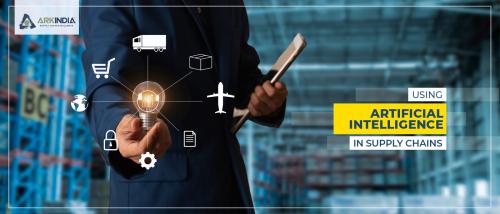
Generations of Hollywood movies have given us a very different (but cooler) idea of what to expect when we hear the words Artificial Intelligence. But instead of robot friends, we have to settle for automated software and voice assistants that can play the song we ask it to.
By definition, AI (realistically) is intelligence displayed by machines that are similar to cognitive abilities displayed by intelligent life-form instead of process-oriented task fulfillment capabilities. The development of this technology over the years has been successfully implemented by businesses everywhere in the world.
Industrial and personal application of this technology has been catching on like wildfire. According to Gartner Analyst, Noha Tohamy, AI can be described easily by dividing it into two categories; Augmentation and Automation.
1. Augmentation: Usually used on a more personal level, Augmentative AI assists people in conducting day-to-day tasks. Also used on the commercial level, this kind of technology would help people, without having total control of the outcome. This eliminates human bias and reduces errors caused by it.
2. Automation: This type of AI is exactly what it sounds like. Automated AI has total control over the outcomes without any requirement of human intervention. A great example is the robots that perform automated tasks in a factory’s assembly line.
In a Supply Chain, AI can be implemented to ease a lot of tasks and processes. Management of a large industrial operation such as this can be made very easy if some of the processes don’t require human intelligence which can be flawed at times. It also allows companies to automate record-keeping and other tedious tasks which waste hundreds of hours due to human inputting and outputting methods.
Even companies that are just starting out have begun to implement AI functions into their everyday operations. Businesses of all levels have a supply chain of some sort, and they all can benefit from the modernized use of AI technology. Let’s look at some ways in which AI is best implemented for Supply Chain Management.
1. Chatbots for Communication: Chatbots are a great way to automate responses to potential clients and also communicate with suppliers. It is a great tool to procure information and act as a database through which appropriate responses are accumulated over time. Other amazing functions that a Chatbot can perform are speaking to suppliers on your behalf, placing orders, send particular instructions to suppliers and customers, etc.
2. Machine Learning for Planning: Planning is an important part of SCM. You need to look ahead into the future demands to be able to stay always stocked up in inventory and make the orders on time. With intricate tools that involve ML technology, your systems can learn the needs of your inventory, and stay one step ahead. This gives you the freedom to focus on more important things.
3. Machine Learning for Managing Warehouses: A warehouse is another place filled with lots of moving pieces. A human brain can only be so precise when it comes to these tasks. A Warehouse Management AI tool that can learn your entire template inside out is a great tool to use for a business that relies on selling a large catalog of products.
4. Natural Language Processing: NLP is well known to build a dataset based on lots of foreign languages in a streamlined manner. This eliminates the language barrier that can be the cause of a lot of lost and misconducted business. Buyers and suppliers enjoy a better relationship due to the implementation of NLP systems.
5. Predictive Analysis and ML for better SRM: Supplier Relationship Management is one thing that has started to be taken more seriously in modern times. With so much saturation in the marketplace, selecting the right supplier has become quite a task. With AI features like Predictive Analysis and Machine Learning, you can be better prepared when it comes to selecting and meeting new suppliers. The data that you can tap into with these tools is surreal and makes it a breeze to interact with and select new suppliers.
Due to the rising use of AI in businesses, industries have started to adopt new ways of infusing technology into business. This modernization does have some risks involved to the security and integrity of a corporate structure, but it is a technology which still being perfected. In due time, AI should be a great power of humanity that increases the efficiency of the business..